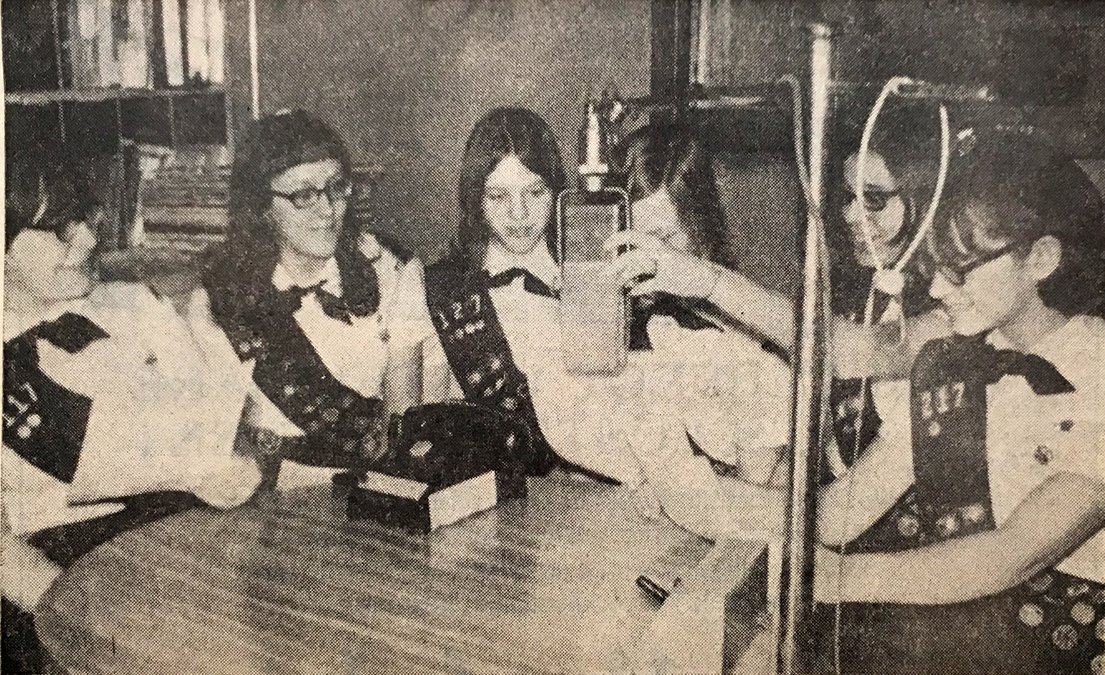Each week we’ll take a step back into the history of Great Bend through the eyes of reporters past. We’ll reacquaint you with what went into creating the Great Bend of today, and do our best to update you on what “the rest of the story” turned out to be.
Fifty years ago this week, James Earl Ray pleaded guilty to the murder of Civil Rights leader Dr. Martin Luther King. He accepted a 99-year sentence in the Tennessee State Penitentiary. In doing so, he agreed to waive all rights to an appeal.
But, according to the Associated Press report appearing on the front page of the March 10, 1969, edition of the Great Bend Daily Tribune, Ray asked to be put on the record saying he did not agree with “the theory that there was no conspiracy.”
Tennessee law required testimony be heard to establish the actual fact of King’s slaying at the Lorraine Motel on April 4, 1968, because the death penalty could be involved. Five witnesses testified: Rev. Samuel B. Kyles, Chauncey Eskridge, Dr. Jerry Francisco, Inspector N.E. Zachary and Robert Jensen. After their testimony, the jury was required to formally set the 99-year sentence. The report noted that the state had intended to demand the death penalty, but the state’s electric chair had not been used since 1961.
What happened after the trial? Well, this wasn’t Ray’s first rodeo, so to speak. He had many run-ins with the law leading up to the King’s assassination, and had not been easily apprehended. His conspiracy theory was crafted, it is believed, to provide reasonable doubt. The King family certainly had theirs, and King’s widow, Coretta King, spoke publicly.


“All concerned people must press the State of Tennessee and the U.S. government to continue until all who are responsible for this crime are apprehended.”
Ray recanted his plea a few days later; alas, he did not get a do-over. He did escape from prison in 1977, and was recaptured three days later and an extra year was added to his sentence. According to his Wikipedia file, “Ray spent the remainder of his life unsuccessfully attempting to withdraw his guilty plea and secure a trial.” He died April 23, 1998, at the age of 70, from complication associated with Hepatitis C.
The King family continued to believe Ray did not kill King. In 1997, U.S. Attorney General Janet Reno ordered a new investigation. Ultimately, it was determined Ray had acted alone.
In 1999, the King family sued a man, Loyd Jowers, in civil court for being part of a conspiracy in the wrongful death of Dr. King, and won. They accepted $100 in restitution. In 1993, Jowers claimed on a national news program that he had hired someone to kill King as a favor to a friend in the mafia.


Girl Scout Week
The Sunday, March 9, 1969, edition of the Tribune highlighted the start of Girl Scout Week. A celebration marking the kick-off was held that afternoon at the city auditorium.
“A 57th birthday is being celebrated this week, not only with pride, but with eager anticipation of many more to come. This birthday is the half-century – plus seven – anniversary of the Girl Scouts of the United States of America.”
In 1969, according to the report, there were 34 troops in Great Bend, with a total of 613 girls and 151 adults involved in Girl Scouts! Claflin had 49 scouts and eight adult leaders, Ellinwood 47 scouts and nine adults, Hoisington 118 scouts and 27 adults and Pawnee Rock had 28 scouts and five adults.


Manufacturers meet
Members of the Western Kansas Manufacturers Association and the Central Kansas Manufacturers Association visited Great Bend this week in 1969 for a meeting and banquet Monday night. Before the banquet, they toured the Marlette Coach Co. plant in Great Bend where they saw how Marlette made from scratch almost all of the components of their coaches with the exception of the appliances and furniture, according to one Tribune report.
A March 9 editorial commented that activity around industry “points out the steady effort to inject manufacturing into the formerly agricultural economy of western Kansas.”
Other thoughts included, “What is also interesting about the whole effort is that so much of it is home-grown industry and that industry is succeeding. There seems to be no end to the ingenuity of Kansas and the ability to market the products of that ingenuity.”
Today, its hard to get a clear picture of where manufacturing jobs are headed in the United States, let alone Great Bend. Still, manufacturing continues to chug along. Metal fabricators are in demand, and locally advertisements for jobs at several area manufacturers indicate the jobs are there. Still, we could not find a listing for the Central Kansas Manufacturers Association when we searched. However, the Western Kansas Manufacturers Association is still in existence, and in fact is the sponsor of the 3i Show that happens each year in Dodge.
Just for fun
The question of what constitutes desecration of the flag was NOT answered this week in 1969 in a Seattle courtroom.
“Justice Court Judge Bill Lewis dismissed on Monday a charge of flag desecration against a housewife who testified she did not know it was against the law to use sections of a U.S. flag as window curtains in her residence.
Mrs. Gale H. Buckley, 28, of Seattle, had been charged after a citizen complained and police investigated.
The flag had been cut in half, hemmed and sewn so it could be suspended from a curtain rod in an upper window, Deputy prosecutor George T. Mattson said.
That’s all the report included. Apparently Mrs. Buckley had not familiarized herself with flag etiquette. It is unclear of her intention, but certainly her taste left much to be desired. We have it easier today. We Goggled this, courtesy of Good Housekeeping magazine.





